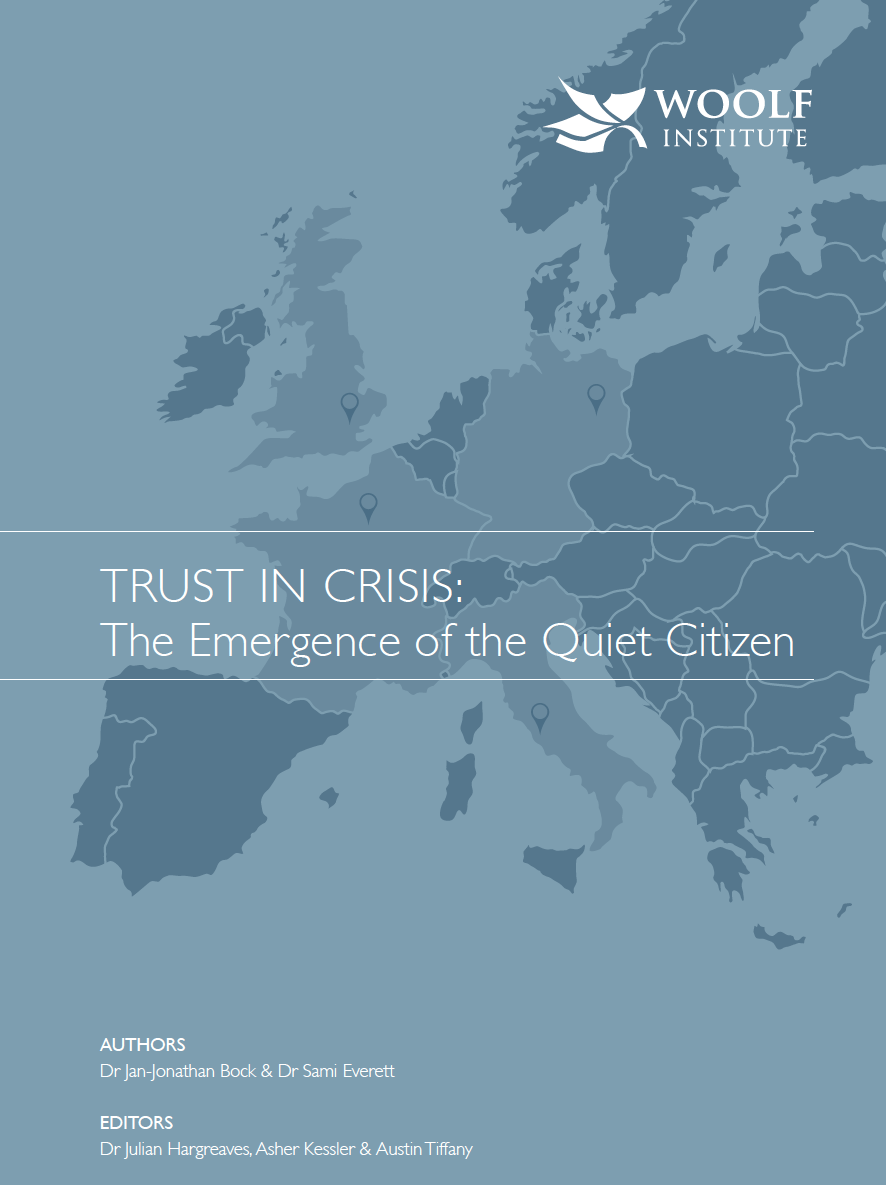Faith communities 'key to cohesion'
Faith and minority communities are the key to cohesion, not the driver of division. Such communities are the root of 'a new kind of citizenship crafted through trust built in times of crisis', according to new research from the Woolf Institute.
 The Woolf Institute is a global leader in the academic study of relations between faith and society.
The Woolf Institute is a global leader in the academic study of relations between faith and society.
In its new report Trust in Crisis, (published 7 July), it sought to understand how experiences of crises impact relations between communities and the formation of trust.
Economic struggle, the influx of refugees, austerity measures, terrorism, the rise of political nativism and dissatisfaction in “the establishment” were identified as just some of the many triggers of crisis across London, Paris, Berlin and Rome.
Grassroots initiatives conducted by minority communities are building trust based on shared social values through times of crisis. The result, it found, is solidarity, social cohesion and community innovation across Europe.
Trust in Crisis revealed that it is local communities, local government and locally-based volunteer organisations which confront direct and immediate needs in times of crisis. They are more in tune with realities on the ground and are able to plug the gaps left by austerity.
It is therefore unsurprising that more people in Britain feel connected to their local community than to their country, says the report.
Trust in Crisis identified a new form of active and local citizenship that mobilises collective values and trustworthiness resulting in solidarity in the face of need. This spans religious divides with little difference between those who identified as religious and of no religion when engaging in some types of community and charity work.
Other findings of the Trust Project include:
-
The rise of the religious politically active: faith-based groups are more engaged in the public sphere, providing emergency services and verbalising on the ground objections to policy.
-
Trust is built on shared values: grassroots initiatives designed to tackle crisis at a local level are creating new forms of community inclusion, based around a set of shared social values. Thus trust produces solidarity.
-
Local citizenship is more active in public affairs: often bringing together groups across religious and ethnic lines for shared purposes.
Based on these findings, the Woolf Institute is calling on Government to:
-
Increase investment in local government: equip local government and organisations to tackle even more effectively the crises they confront them and plug the void national structures are unable to fill. This will build trust and bridge difference in local communities.
-
Create a full-time position responsible for dialogue between religions in major cities: following the model set by the Berlin city government, the role would coordinate activities among local faith groups and provide them with platforms for positive dialogue and exchange.
-
Increase dialogue with more minority communities: with religious identities becoming stronger under current crisis conditions, the diversity of local areas should be reflected in public consultations and community initiatives.
-
Redefine narratives: Government must counter political narrative to champion transparency, solidarity, and inclusion to help feelings of solidarity and belonging continue to grow at a local level.
-
Empathy alongside economic development: Government must augment empathy alongside economic development as it is only when both work simultaneously that a greater quality of life will be possible.
-
Celebrate the “quiet citizen”: those individuals who positively contribute to his or her neighbourhood or community without recognition or attention. Promoting this type of citizenship shows that actions trump religious and social boundaries and enable minority groups, whether faith-based or secular, to positively contribute to public life.
Commenting on the findings Dr Ed Kessler, Woolf Institute, said ‘The tragedies the UK has faced in the last few weeks alone has placed the importance of local and faith-based communities into sharp focus.
'Trust In Crisis identified that faith and minority communities are the key to cohesion, not the driver of division as is so-often reported. We must celebrate this new kind of citizenship, those people in our community who are taking it upon themselves to provide support and unite our local communities.’
Baptist Times, 07/07/2017